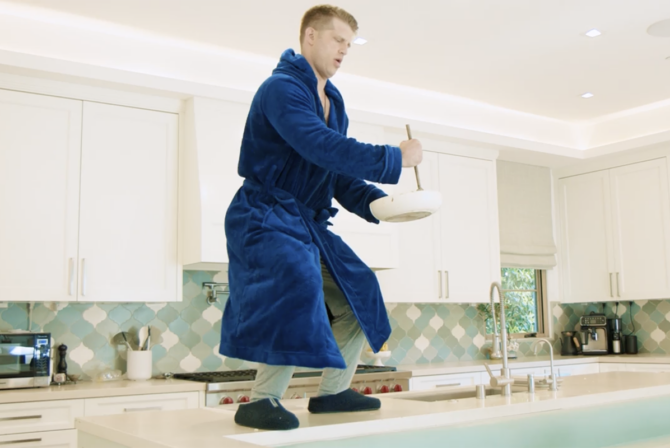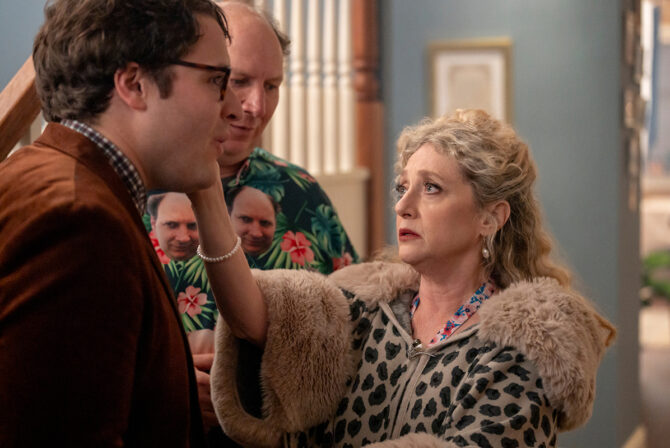Will she go by Ms. Lynne or Mrs. Lynne?
That was my oldest daughter’s first question when I told her that her friend’s parent was transitioning from a man to a woman, and transitioning from being called Max to being called Lynne. Ms. or Mrs. She wanted to get the naming right. And the pronouns weren’t the confusing part.
To be honest, I’d expected that she’d greet the news fairly calmly. She’s got a trans friend from one of her activities (Vera’s a girl who was born with a penis, OK? OK), and she and her siblings have been surrounded by books like “Jacob’s New Dress” and “Backwards Day” all their lives. They know about gender non-conforming kids; in ways small and sometimes big, they (like so many children) are also gender non-conforming kids.
But still: Pronouns are hard. Many of Lynne’s adult friends, even the most supportive, struggle to call her she, to gender her correctly. It’s a transition for everyone, in some ways. But it’s a much harder transition for Lynne and her family. And her friends.
My kids got it right away. My middle daughter needed a bit more explanation, and there were a few subsequent questions (which I encouraged them to ask Lynne directly, and which she answered happily), but essentially, they understood: Lynne had been born with a penis, which made everyone think she was a boy, but actually that was incorrect. Really she was a girl all along, but it was hard (given the penis, given that she’d spent so much time living as a boy) to live as a girl. We talked about how she must have felt, acting as and being treated as the wrong gender her whole life, and how exciting it must feel for her right now. We also thought about the challenges she was now facing, and the reasons why some people might not understand that being a woman is actually who she really is. And we considered how it might feel for her sons, and how the right thing here might also be the hard thing for them and for her wife.
So Jason now has two moms?
Another good question. And one that showed that they got the switch. They just wanted to figure out the practicalities.
I was proud of them, and, frankly, of myself. We’ve tried to raise the kids with an (age-appropriate) understanding that the gender categories they see around them are generally constructed and quite limiting. We encourage them to challenge anything that is “just for girls” or “just for boys.” And sure, the girls like some “girl stuff,” and my son likes some “boy stuff.” And he likes some girl stuff. And they like some boy stuff. Maybe not as much as we’d like: Social forces are powerful and come from everywhere. That’s OK. We get it. We just hope they get it, too. We try to help them get it, to be critical of the categories and figure out their own reasons for rejecting stuff that supposedly isn’t for them. That in and of itself is a huge victory, and opens up lots of options for what they get to like. And what they get not to like.
And all that was surely helpful in navigating a gender transition that was happening before their eyes. Because it wasn’t only about the pronouns and the names: Lynne was literally changing how she looked, a little more each time they saw her. That’s a lot to take in. It was a lot for her adult friends to adjust to. It was a lot for her own kids to adjust to. It was a lot for her wife to adjust to. And I’m quite sure it was a lot for her to adjust to. Along with adjusting to everyone else’s adjusting.
I wasn’t sure why my kids had so much less trouble in assigning her correct gender and pronouns than adults, who surely are pretty good at this language thing. Sure, some of it is just a question of habit: It’s hard to change what you call someone who you’ve known for a very long time. But it was more than that: Many people, who are quite supportive, really don’t think of Lynne as a woman. Maybe they aren’t there yet, maybe they never will be.
But for my kids, and maybe for a lot of kids, biology is really such a small part of the picture. They (thank God!) aren’t particularly worried (yet?) about what equipment people have. That’s just flesh. What matters more is how you act, who you are, the way you want to be in the world. The way you want people to treat you.
We teach our kids to respect others, to think about what they want. We teach them empathy. We ask them to care for others as they would like to be cared for. To listen to what people are asking for, and to work together to figure out the best way forward.
We teach them, and they have learned. And when it comes to trans people, they have much to teach us.
Ed. Note: Names have been changed in this article to protect people’s privacy.
Read More:
4 Things You Should Do When Your Friend Loses a Spouse
Sheryl Sandberg Admits She Got It Wrong with ‘Lean In’
My Jewishness Is Not Defined by My Faith in God, But This Instead

This post is part of the Here.Now series, which seeks to destigmatize mental health,
and is made possible by UJA-Federation of New York and The Jewish Board.
You can find other educational mental health resources here.







